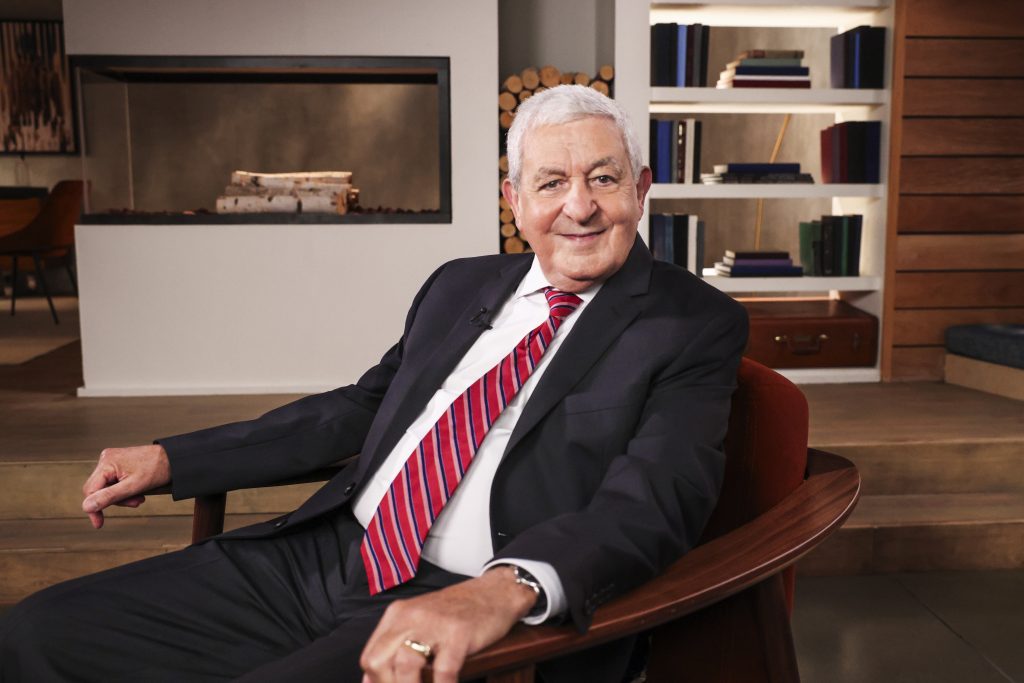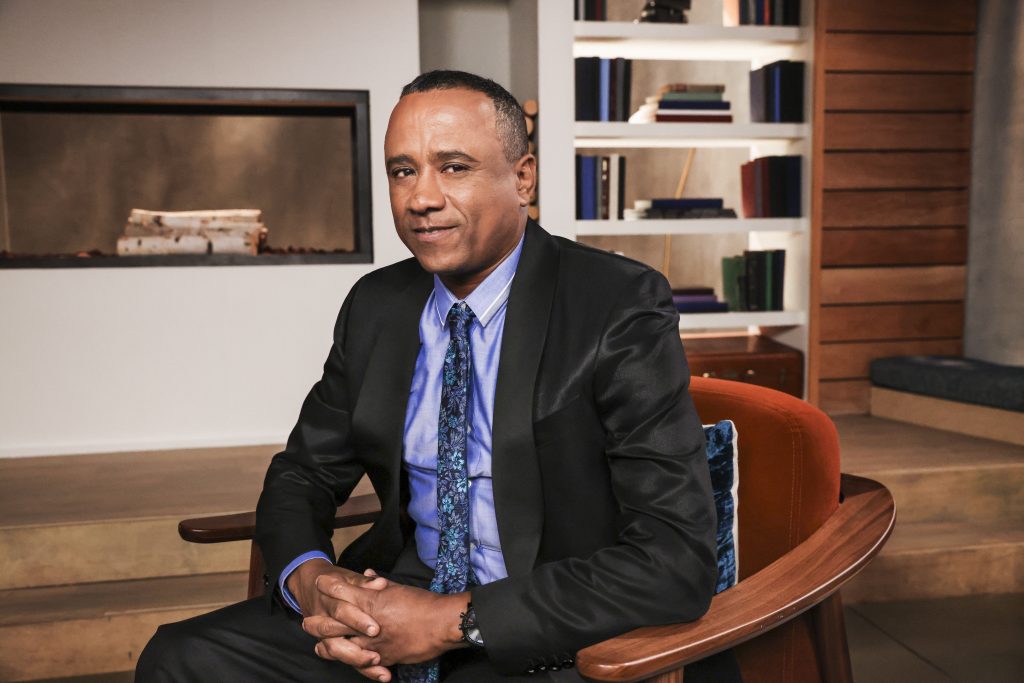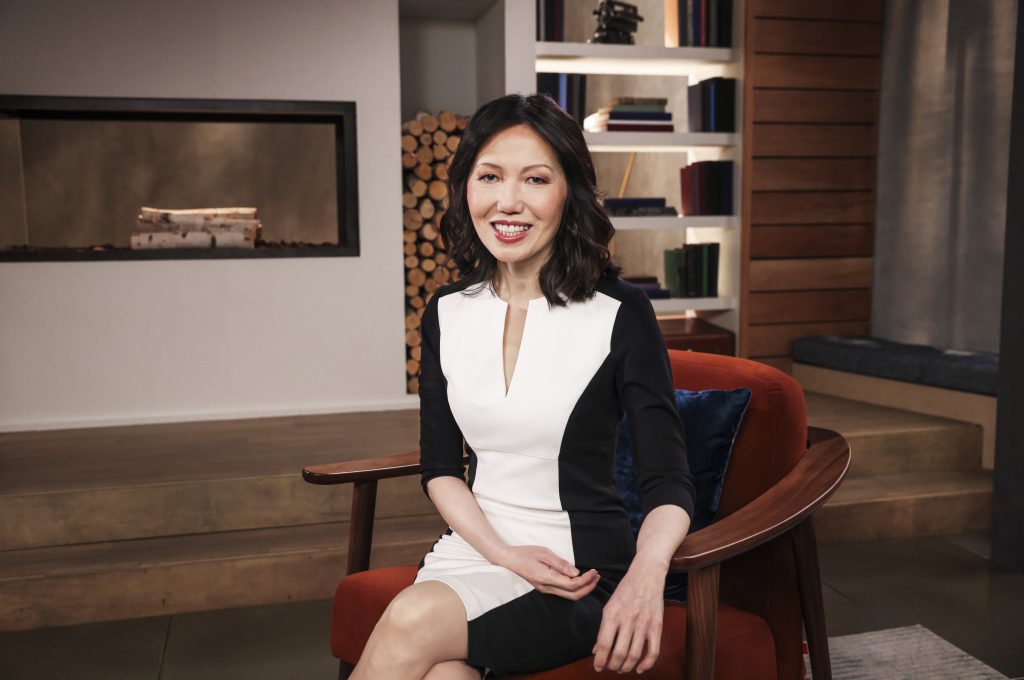The Idea of America: TCM September 16 Guest Hosts
This September, Turner Classic Movies (TCM) shines a light on The Idea of America, highlighting immigrants’ perceptions of The United States of America and what it means to be American, through the lens of the American movies they watched when they were young. Nine immigrants join TCM Primetime Host Ben Mankiewicz to discuss the movies that shaped their idea of the U.S. before they moved here. They explore where perception and reality aligned, and what has surprised them about life in America.
Classic Couple posed questions to the guest programmers. Their responses follow.
Airing at 8 pm ET Friday, September 16, 2022
Gabriel Bitton
Film: Splendor in the Grass (1961)
Hometown: Marrakesh, Morocco
Current Residence: Gainesville, FL

Gabriel Bitton was born and raised in Marrakesh, Morocco, and thought of himself as the kid from Cinema Paradiso. He grew up with a love for film, going to the movie theaters every Saturday. When he was 15, he saw the filming of The Man Who Knew Too Much in the streets of Morrocco, and in high school he won a film camera as a prize in a contest. He moved to France for college, and then came to the U.S. to do his post-doctorate work at Harvard. He is now Professor Emeritus of environmental engineering at the University of Florida. Gabriel is introducing Splendor in the Grass—growing up, he imagined that teenage life in America was just like the film. He married a woman from Columbus, Ohio, which, in his words, is “as American as apple pie,” and he felt the film matched up to his reality in the U.S.
Classic Couple: As a young man, how did Splendor in the Grass (1961) inform how you felt about love and romance?
Frankly, 60 years have passed and it is difficult to remember precisely my feelings about love and romance at that time. I may add that I loved the scenes in high school where boys and girls appeared to be care free. They were wearing Jeans and sneakers, and that was in contrast to my French high school with a rather stuffy atmosphere. My fellow students were less relaxed and less cool that the American kids I saw in Splendor in the Grass.
Moreover, I was also very much influenced by the many French movies I saw as a teenager in Marrakech, Morocco.
Classic Couple: How does Splendor in the Grass, or another classic movie, represent your own American dream?
Splendor in the Grass is the story of two American families in the 1920s. It is frankly a depressing story that ended in the Great Depression of 1929. It was a low point in American capitalistic system. Afterwards, America recovered and produced the “greatest generation” that saved Europe and the world from Nazi tyranny.
On a more cheerful mood, my American dream was fulfilled by westerns like Rio Bravo that was filmed in 1959. Westerns appealed to me because of the wide space and the grandiose vistas of the American west.
Classic Couple: Morocco has been the setting for a number of classic films. Is there one that you believe offers the best representation of your home country?
Yes indeed. A movie that jumps at me is the classic movie Casablanca, which was shot in 1941 but, unfortunately, entirely shot in Burbank, California. The movie that displays the beauty of my hometown, Marrakech, is The Man Who Knew Too Much, which was directed by Alfred Hitchcock, starring James Stewart and Doris Day. As a high school student, I had the privilege to be present during the shooting of one of the scenes of the movie. I was impressed by the cool directing style of Hitchcock.
Airing at 10:30 pm ET Friday, September 16, 2022
Ash Nega
Film: The Champ (1979)
Hometown: Addis Ababa, Ethiopia
Current Residence: Atlanta, GA

Ash Nega was born and raised in Ethiopia. At the age of 14, his mother sent him to the U.S. to attend the Oneida Baptist Institute in Oneida, Kentucky, where he could get a scholarship. Despite being being in the company of other Ethiopian students, he had a difficult experience there; on arrival, he learned that it was primarily a reformatory school and he felt even further isolated living in a city that was almost completely devoid of diversity. He didn’t speak with his mother for 6 years after being sent to America, but he recognizes now that it was the best thing she could have done for him. He committed to excelling at his school and, after graduating high school, he earned a scholarship to Cumberland College in Kentucky. In 2006, he and his wife, Titi Demissie, opened Desta Ethiopian Kitchen in Atlanta, GA, which today has two locations and is widely considered the best Ethiopian restaurant in the state. He’s very proud to apply American business principles in running his restaurant.
Growing up, he would watch American movies with his family in his community’s one-screen theater. He remembers being struck by The Champ (1979), which he is introducing on TCM, and other stories about overcoming adversity and succeeding as the underdog.
Classic Couple: What about The Champ (1979) most resonates with your experiences as a child who immigrated to America on his own?
The Champ meant a life style, perseverance, courage and independence! And that’s my true experience in America and I’m glad I watched it!
Classic Couple: What did The Champ teach you about family that shaped your own life and relationships?
l learn that you have to sacrifice to not give up in order to accomplish anything! Most importantly to look up not to look down! That helps me shape my life and my relationship!
Classic Couple: What other classic films featuring the triumph of the underdog are your favorites?
ROCKY!
Airing at 12:45 am ET Saturday, September 17, 2022
Crystal Lee
Film: Love Story (1970)
Hometown: Seoul, South Korea
Current Residence: Los Angeles, CA

Crystal Lee was born in South Korea and has played classical piano since she was 7 years old. She came to the U.S. to start her degree in Music Therapy at Michigan State University, and landed in East Lansing, Michigan by herself. After graduating, Crystal was accepted to University of Maryland School of Law, but her studies were interrupted when family matters forced her to return to Korea. Undeterred, she came back to the States three years later, reapplied, and completed her degree. She practiced law in Los Angeles, primarily representing Korean companies. In 2011, she began acting on the side. Acting has become her primary profession and she now practices law on the side.
After seeing Love Story, the film she’s introducing on TCM, she decided she wanted to come to the U.S. for college. She even went so far as to fail out of college in Korea so she could go to school in the U.S.!
Classic Couple: What was it about Love Story (1970) that made you want to attend university in America?
I always wanted to come to America and study at a college in America. I wanted to experience college life and walk around the campus as appeared in Love Story. I was inspired by the main characters in Love Story, Oliver and Jenny. In the film, Oliver was pursuing his true love and was able to be independent from his parents even if he had to go through a harder life without parents’ supports. With his love and passion, Oliver was able to complete law school and became a lawyer. I was studying classical piano when I was in Korea. I loved Jenny’s father in the film also as he was not only a loving father but also acknowledged and supported his daughter’s decision in her life. The courage of Oliver and Jenny to follow their hearts and pursue their own ways of life was beautifully portrayed with their college life, and I really wanted to experience my life in an American college also.
Classic Couple: As an actor, what about the performances in Love Story do you most appreciate?
I loved the performances of Oliver and his father. Their acting was very natural, subtle, but vulnerable and truthful, portraying the father and son relationship so beautifully.
Classic Couple: How would you describe the cultural impact of classic American movies on Korean culture?
I believe classic American movies represent values and cultures of America to Korean people and have impacted Korean culture throughout the decades in countless ways. Such impacts include both intrinsic and extrinsic values to Korean and Korean cultures. The American beliefs and cultures are both loved by many including myself while sometimes hated by some in Korea. I loved American culture I observed through classic American movies – Americans, English language, American foods, fashions, education system, also some of values I believed that represented what America was, such as, freedom to express, different views on what happiness can be, existences of differences among people can be acknowledged or maybe accepted, creativity can be respected and allowed, living the life can be determined on your own, etc.
